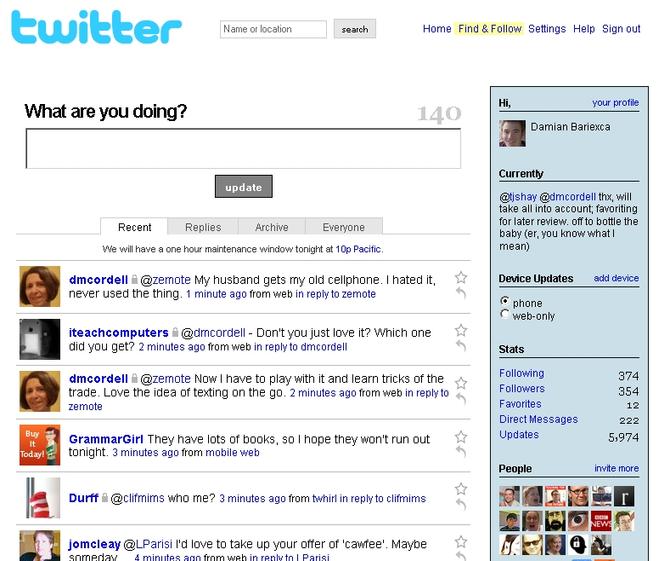At the time of writing, I’m supposed to be researching school reform initiatives for a grad class assignment. Instead, I’ve spent the last hour or two refreshing my Facebook and Twitter feeds, watching educators from around the country mourn the loss of Deven Black.
I came to know Deven, as I have so many other wonderful educators in my career, through our shared activity on Twitter. When we first “met”, Deven was a special education teacher in NYC, and he and I had many conversations about education (special and otherwise); we would later co-moderate a weekly chat on Twitter geared toward special education issues, which we did fairly regularly for the better part of a year. He struck me as an interesting and deeply thoughtful guy for many reasons, not the least of which was the route he took into teaching. From his blog’s “About” page:
After a stellar career as a middle school student I dropped out of two different high schools and a college, all before I was 17. That started what has been a long-lasting and continually evolving interest in schooling.
I started teaching at age 50, after being a newspaper reporter, radio newsman and talk-show host, voice-over artist, political campaign operative, bartender, restaurant manager, advertising copywriter, and public relations person. Of these careers, teaching is the most difficult, lowest paying and most rewarding. It took a long time to figure out, but being a teacher is what I want to be when I grow up. Like that is ever going to happen.
His career path in education later took him into the role of a school librarian, and I remember the zeal with which he approached his new position at the time. He was written up in the School Library Journal in 2013, and won the first Bammy award for school librarians later that year.
While the specifics of our many conversations have long since faded from my memory, what stays with me from Deven – and what continues to inform my own work – is how much kindness, humanity, and thoughtfulness matter in teaching. In the day-to-day work, it’s easy to get frustrated by and hung up on things that are, in the greater sense, ultimately pretty trivial. Sometimes we – children and adults alike – put other things ahead of kindness: bureaucracy, pedantic rules, paperwork, outdated notions of authority, whatever. In the long run, though, none of it is as important as showing kids you care.
His perspective, to me, was that of the underdog. That may not be exactly the right word, but I guess what I’m trying to say is that he often pushed back against popular notions or opinions; sort of a “But did you ever consider…?” in defense of whatever people were tut-tutting about in the “these kids today” vein. I don’t know if that was influenced by his own experience with formal education (as noted above), but it seems possible. Listening to him was so valuable to me in part because that was a very different perspective than my own, as someone who was always very compliant and good at “doing school” as a kid. He helped me get more in touch with my own empathy and humanity, which was particularly helpful in my position as a school psychologist.
Even in casual conversation, Deven challenged my thinking in such a way that even after we had fallen out of touch, I would (and still do) ask myself from time to time, “What would Deven have to say about this?” He is one of a few educators whose influence – unbeknownst to them – acts as my own internal Jiminy Cricket, constantly checking my assumptions and gut reactions and forcing me to reexamine stances, situations, conflicts, and resolutions from multiple perspectives. It’s a fairly short list of people who actively influence my thinking on a regular basis like that, but Deven was most certainly on it.
The circumstances surrounding Deven’s death are, to be frank, shocking. Maybe delving into that is appropriate for a piece on how it might and should have been prevented, but there are far better ways to memorialize the man, which is why I haven’t linked to any news articles here. There are better things you can read.
Go read Deven’s blog. There’s nearly four years worth of his collected writings on education archived there.
Go read his Twitter feed. It seems to have been hijacked by spam most recently, but scroll down to the tweets dated early 2014 or earlier to see the kinds of resources he shared and hard questions he posed.
Go read his interview with the School Library Journal and find out why they called him “Middle School Maverick.”
Go read ALA’s writeup on his Bammy award win. Regardless of what you or I think of these awards, he was recognized by his peers as one of the best. That has to mean something.
Go read his interview with Wide Awake Minds, wherein he discusses the value of failure, curiosity, and school (h/t Ira Socol for the link).
Go watch his 2012 talk at #140Edu, “How to make dropping out of school work for you” (h/t Kristin Hokanson for the link)
I only knew the man for 7 or 8 years. I certainly didn’t know him as well as others did, and I only actually met him face-to-face once, but through his writing and our conversations, he has had a tremendous influence on me. I will miss him.
Update, 29 Jan 16 6:00pm
As expected, the tributes to Deven from the many people he impacted are starting to roll in. I’ll add them here as I come across them:
